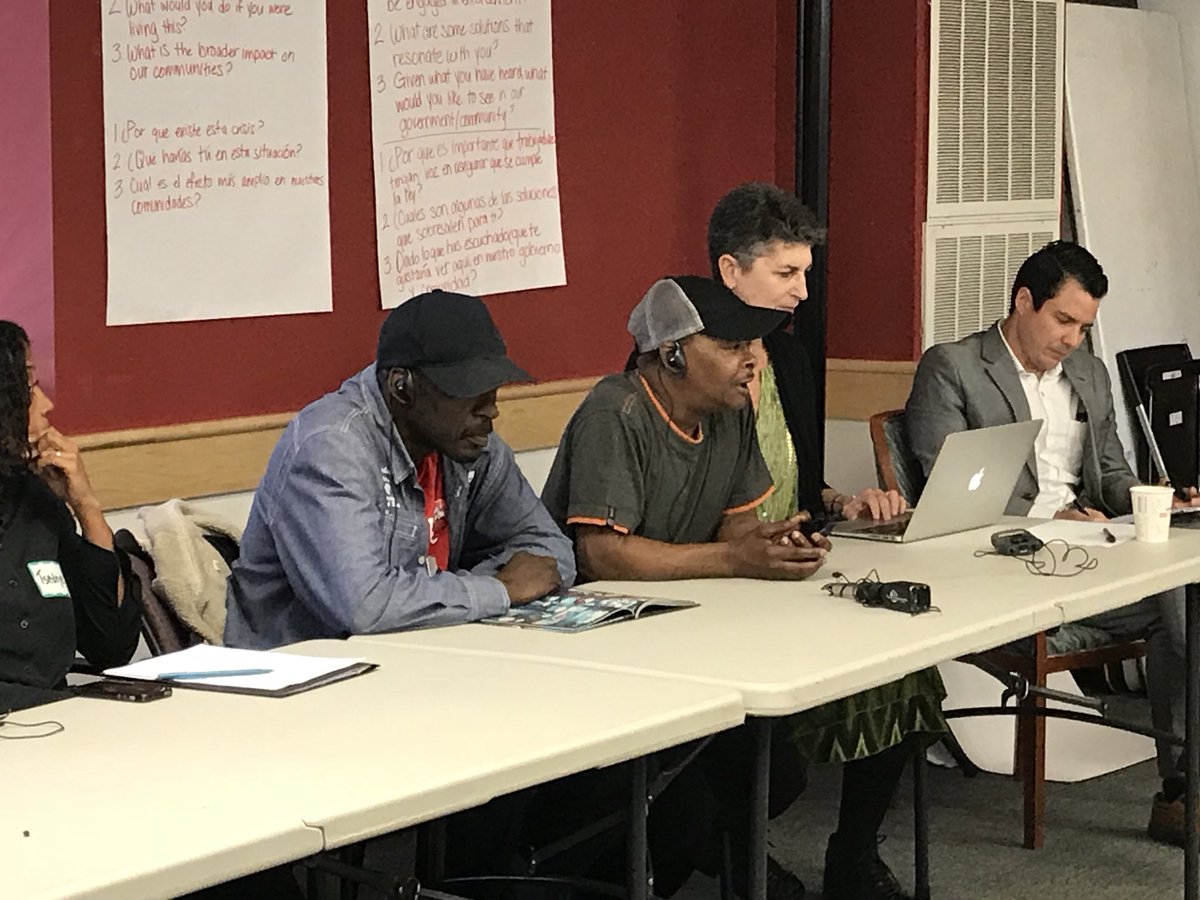

Share
Twin Cities workers, together with national labor experts, called on public officials Wednesday to beef up enforcement of Minneapolis-St. Paul ordinances requiring employers to pay earned sick and safe time and the new Minneapolis minimum wage of $15 an hour.
They also said more needs to be done to tackle the problem of wage theft.
CTUL, Centro de Trabajadores Unidos en Lucha/Center of Workers United in Struggle, a Minneapolis-based worker center, convened the forum, which was held at their offices. In addition to a number of low-wage workers, participants included city officials and legislators, as well as national labor experts from organizations such as the National Employment Law Project.
In June, the Minneapolis City Council voted to raise the minimum hourly wage to $15—making the city the first in the Midwest to do so. Also this summer, Earned Sick and Safe Time ordinances became effective in both Minneapolis and St. Paul, guaranteeing most workers the right to earn paid time off to be used for illness, medical appointments, or threats to their safety, including domestic violence and sexual assault.
Wednesday’s forum focused on the critical need for workplace enforcement to ensure that workers are able to fully access the wage and benefit increases.
“We are often afraid to speak up about our rights out of fear of retaliation. The laws exist, but if there is not follow through on enforcement, we don’t enjoy the benefits of those laws. If we all stand together, we can make justice real,” said Emilio Miranda, CTUL member.
Panelists in the forum included several local low-wage workers who discussed their experiences with wage theft and other workplace violations, emphasizing the need for strong enforcement standards that empower workers to speak out about their experiences without fear of retaliation.
“These ordinances are critically important for working families, and if fully implemented, they will go a long way towards dealing with the severe racial and economic disparities in the Twin Cities metro area. When the Minneapolis and St. Paul City Councils vote on their annual budgets in December, they will have the opportunity to demonstrate that enforcing these new workplace standards is a priority,” said Veronica Mendez Moore, CTUL Co-Director.
Davis Senseman of Main Street Alliance, a coalition of local small businesses, spoke of the need for strong enforcement that levels the playing field for business owners who respect the new labor standards.
Closing out the panel were several national experts in the field who underscored the importance of partnerships with community organizations and sufficient funding in order for enforcement efforts to succeed. They included Dylan Orr, Director of the Seattle Office of Labor Standards; Professor Janice Fine of Rutgers University’s Center for Innovation in Worker Organization; and Tsedeye Gebreselassie of the National Employment Law Project.
“We know that enforcement agencies cannot do this alone. Labor Standards Offices in cities around the country are developing strategic relationships with community organizations that have the trust of the most vulnerable workers in the workforce. Workers are out there every day experiencing the reality of labor violations in their workplaces. They are the experts in knowing what is really happening in the workplace. Strong partnerships with community organizations allows the enforcement agencies to gain access to that expertise,” said Professor Fine.
Dozens of community members participated in small group discussions about enforcement standard along with elected officials and staff, including State Representatives Paul Thissen, Ryan Winkler, and Frank Hornstein; candidates for/current Minneapolis and St. Paul City Council Representatives Elizabeth Glidden, John Quincy, Dai Thao, and Jeremiah Ellison; staff from the Minneapolis Mayor’s office and several other City Council Representatives’ offices; and staff from United States Congressman Keith Ellison.
Mendez Moore was hopeful about cities stepping up to uphold labor standards and end wage theft.
“We want to be able to see an enforcement mechanism in the city that can actually help us put a stop to this.”

